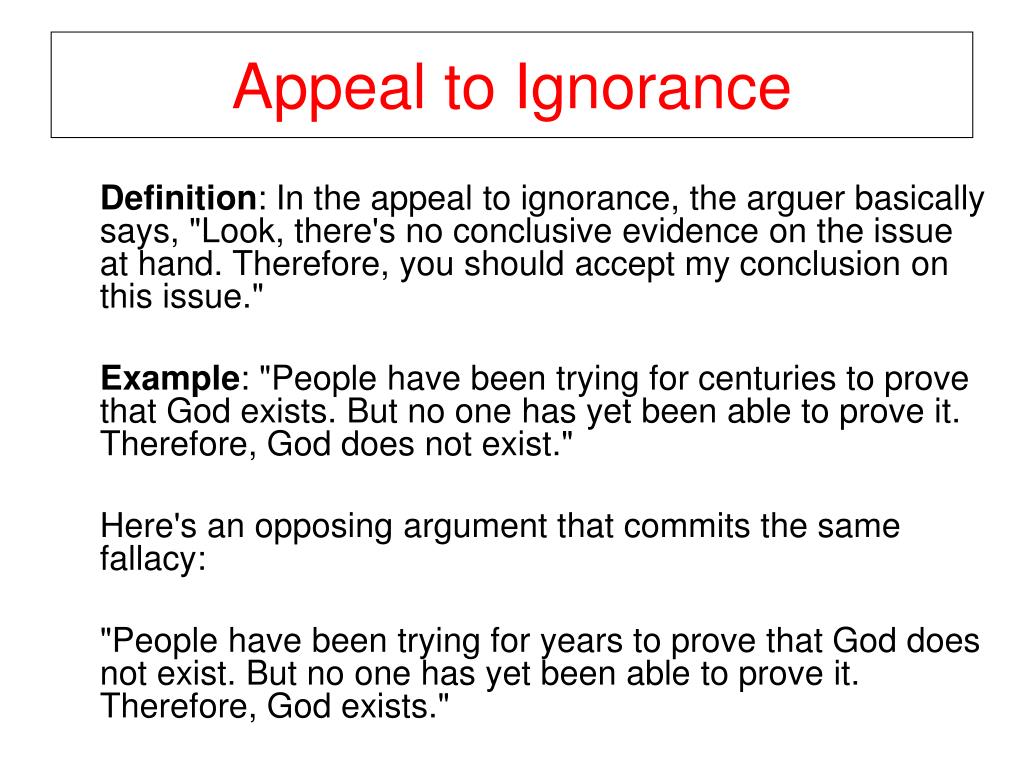
“Nine out of ten shoppers have switched to Blindingly-Bright-Smile Toothpaste.” Urging audience to follow a course of action because “everyone does it.” “I know I missed assignments, but if you fail me, I will lose my financial aid and have to drop out.” Trying to evoke an emotional reaction that will cause the audience to behave sympathetically even if it means disregarding the issue at hand. “Without this additional insurance, you could find yourself broke and homeless.” Using scare tactics emphasizing threats or exaggerating possible dangers. See below for the most common fallacies that misuse appeals to pathos:

An author who essentially replaces logos and ethos with pathos alone is risking losing his or her audience. In addition to making use of pathos, authors must establish credibility (ethos) and must supply reasons and evidence (logos) in support of their positions. Even Sarah McLachlan, the singer and spokesperson featured in the commercials, admits that she changes the channel because they are too depressing (Brekke, 2014).Įven if an appeal to pathos is not manipulative, such an appeal should complement rather than replace reason and evidence-based argument. An example would be the American Society for the Prevention of Cruelty to Animals (ASPCA) commercials featuring the song “In the Arms on an Angel” and footage of abused animals. Such a manipulative use of pathos may alienate the audience or cause them to tune out. In such a context, engaging the emotions, values, or beliefs of the audience is a legitimate tool being used effectively.Īn appropriate appeal to pathos is different than trying to unfairly play upon the audience’s feelings and emotions through fallacious, misleading, or excessively emotional appeals.


#EMOTIONAL APPEAL FALLACY EXAMPLES FULL#
This anecdote will be a means of gaining an audience’s attention for an argument using evidence and reason to present the full case as to why the law should/should not be repealed or amended. For example, a writer or speaker may begin with an anecdote showing the effect of a law on an individual. Up to a certain point, an appeal to pathos can be a legitimate part of an argument.


 0 kommentar(er)
0 kommentar(er)
